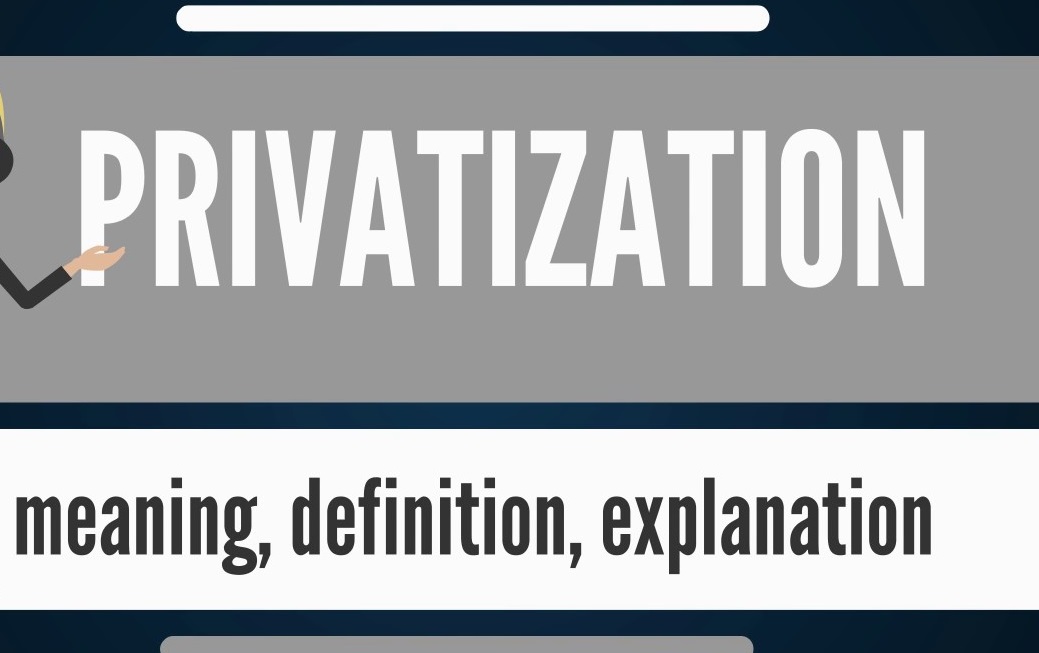Privatization With Its Advantages and Disadvantages
Privatization Refers to the policy of transferring assets and activities of public sectors to the private sectors or individual. Privatization is one of the Structural.
Adjustment programs result’s which has been emphasized by the International Monetary Fund (IMF), World Bank (WB) and donors from abroad, particularly western countries like, Britain, France, USA, Denmark and German
The origin of privatization policy.
The ongoing economic crisis of the development countries and their growing dependance syndrome are some of the factors that have contributed the introduction of privatization
However, the policy started in 1980’s and gained significant public notice at the global level during the same decade (1980’s) when Britain’s ) Prime Minister Margaret Thatcher took deliberate and extra efforts to advocate the necessity of shifting public or government activities to private actors so as to increase production and efficiency in the economic sectors and restructure the prevailing conditions in countries like Tanzania.
Under the conditional ties of the World Bank, governments of the developing countries began experimenting various forms of market reforms including setting most of the public assets to private sectors, deregulating and contracting their public services to private providers.
Under this situation, therefore privatization gained widespread interest and become an acceptable policy, to government policy makers, services providers as well as public planners
The objectives of privatization
1. To create more market oriented economy where those privatized firms will participate in the stock market.
2. To improve economy through increased productivity and efficiency of the privatized parastatal
3. To secure and enhance access to foreign markets, capital and technology through attracting managerial and technological resources from the private sector
4. To broaden share and ownership through equal provision of public services to all levels
5. To reduce the over whelming and challenging increase of public debt
6. To promote the spirit of self-reliance
Measures taken to enhance privatization
1. To improve the operational efficiency of enterprises and their contribution to the national economy by selling them to private investors
2. To reduce the burden of parastatal enterprises dependence on the government budget by selling them to private investors
3. To expand the role of private sector in the economy and permit the government to concentrate on the provision of social services like health, education and infrastructures.
4. To encourage wider participation in the ownership of private companies and management of business by selling and letting private investors engage in production
Advantages of privatization
1. It has increased flexibility due to reduction of bureaucratic complexity and procedures which have in turn lead to an improvement of the national economy
2. It has reduced costs resulting from improving and increase efficiency in production through competitive process
3. Privatization has led to the improvement and rise of competition among the existing organization
4. It has met the demands beyond the current government capacity. The private sectors encourage competitions which increase the level of productivity and efficiency
5. Privatization provides clients with more choice of options where they can be more satisfied in terms of contract, salaries and working conditions
Disadvantages of privatization
1. Privatization has led to an increase in unemployment rate among the indigenous people. This has been the case, because most of the private investors are the people from outside. When any public enterprise is privatized it is accompanied with massive redundancy of the previously local working personnel and employment of new workers from the investors home country
2. It has led to the fall in agricultural sector due to the withdrawal of the government from providing agricultural incentives to the peasant/farmers.
3. It has increased temptation to reduce quality of goods and services by some dishonest investors in order to reduce costs and maximize profit
4. Privatization has increased the rate of moral erosion due to its policy of free trade. The private for example such goods like pornography pictures and other related firms or VCD /DVD have greatly affect the younger generation.
5. Privatization policy has increase the rate of poverty to people especially those living in rural areas due to the decline in agriculture production. Rural people depend on agricultural production for better to the decline in agricultural production. Rural people depend on agricultural production for better quality of their life. But due to privatization their standards of living has been deteriorating because of the falling prices of their agricultural produce




































































